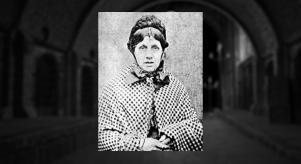
Why Was Alexander Litvinenko Murdered?
On 1 November 2006, one of the strangest killings in history was committed in the heart of London. It was strange for a number of reasons. First, the victim didn’t die until weeks later, and actually helped solve his own murder while lying on his deathbed. Second, the act was seemingly sanctioned directly by a major world leader. And third, it was the kind of killing you’d expect to find in the pages of an Ian Fleming or John Le Carre novel, rather than in the pages of newspapers and news sites. So just who wasAlexander Litvinenko, who were his assassins, and why was he killed?
Litvinenko could have easily been the hero of a spy thriller, with a backstory almost too dramatic to believe. He was once a member of the FSB, the ominous Russian security agency that evolved out of the infamous KGB. At first a servant of the state, he went rogue and became a powerful critic of the corruption at the heart of the Kremlin. In particular, he pointed to an alleged plot to eliminate billionaire tycoon Boris Berezovsky, who was an enemy of Vladimir Putin.
Knowing he was in danger, Litvinenko fled Russia and began a new life in London as an exiled dissident. He wrote books which slammed the Russian establishment, even accusing the government of ordering “false flag”, inside-job terrorist attacks and political assassinations. He also wrote about alleged ties between Putin and the Russian mafia, claiming the FSB was involved in international drug trafficking.
Not only was Litvinenko a brazen critic of Putin, but he was also said to be working for MI6, which made him a traitor as far as many were concerned. Things came to a head in November, when he met with two fellow Russians in the bar of the Millennium Hotel in London.
These men were Andrei Lugovoi and Dmitry Kovtun, who were former KGB agents apparently interested in working with Litvinenko on private security work. As Lugovoi had, like Litvinenko, been an associate of the dissident tycoon Boris Berezovsky, he seemed to be a trustworthy ally. At this meeting, Litvinenko took a few gulps from a cup of tea. This tea was the innocuous murder weapon, laced with the deadly element polonium-210.
Before long, Litvinenko was ill and being rushed to hospital, as baffled doctors tried to work out what was shutting his body down in such a devastating way. Litvinenko himself was in little doubt that he’d been poisoned on the orders of the Russian state, and worked with police detectives who sat by his deathbed to piece together what had happened.
The day after Litvinenko finally succumbed to this excruciating toxin, a high-profile member of the Russian government gave a speech calling his death a “deserved punishment”, and reminding the world that “In Russia, they do not pardon treachery.”
The inquiry concluded that the assassination was very likely sanctioned by Vladimir Putin himself
It took years for an official inquiry to investigate this sensational case, and its findings were damning. The inquiry concluded that the assassination was very likely sanctioned by Vladimir Putin himself. It was also revealed that the two killers had left a glowing trail of polonium right across London, almost as if they didn’t realise just how dangerously radioactive the toxin was.
The evidence led to the surreal sight of prominent journalists and politicians openly condemning the leader of a major world power. One typical reaction was that of MP Ian Austin, who called Putin an “an unreconstructed KGB thug and gangster who murders his opponents in Russia and, as we know, on the streets of London.”
The inquiry outlined several solid reasons why the Russian state would want Litvinenko dead. There were his reputed links with British intelligence, and the nagging belief that he was selling the FSB’s secrets to MI6. There were his close ties to other exiled Russian critics of Putin. And, most sensationally, the inquiry also pinpointed a personal hatred on the part of Putin, who had once been accused of being a paedophile by Litvinenko.
The official story behind the murder is outlandish enough, but that hasn’t stopped others from offering up their own theories. Some in Russia denied state involvement, pointing instead to tycoon Boris Berezovsky as the real culprit. According to this version of events, Berezovsky orchestrated the killing to damage Putin’s reputation by making it look like the Russian leader was wiping out his enemies abroad. Even some dissidents have voiced scepticism – one academic, Boris Kagarlitsky, said, “Personally, I don't think that a decision like this was made at a high level. For Russian authorities, Litvinenko's killing causes more harm than good.”
Other theories that have come up include Litvinenko being killed because he was trying to blackmail Russian oligarchs, threatening to spill their secrets if they didn’t pay up, or Litvinenko accidentally poisoning HIMSELF while trying to smuggle polonium-210.
It’s perhaps not insignificant that the latter theory was proposed by Andrei Lugovoi – one of the two men suspected of poisoning his tea that fateful day in 2006.




